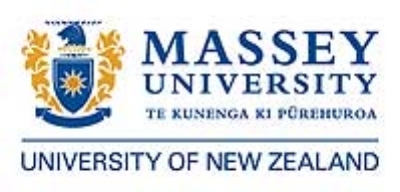Emerald Muriwai McPhee presents at the KBS alcohol symposium at Sheffield University, June 2017. Dr Taisia Huckle and Dr Martin Wall also presented.
Sally Casswell attended the World Health Assembly in Geneva May 2017, seen here being interviewed at the launch of the Bloomberg Partnership for Healthy Cities about the need for alcohol control to provide safe and inclusive cities.
How legalising cannabis can help society
SHORE and Whāriki's Associate Professor Chris Wilkins is calling for the adoption of a not-for-profit public health model for recreational cannabis, which would allow regulated cannabis products to be sold by philanthropic societies, in an approach similar to the Class 4 gambling regime which was introduced in 2003 to regulate“pokie” trusts in New Zealand. See the media release on the Massey University News page - or download the information bulletin here
Dr Chris Wilkins spoke with Radio NZ this morning about setting up a regulated Cannabis Industry. You can listen to the interview here.
Dr Chris Wilkins featured on The AM Show this morning discussing synthetic cannabinoids. Check out the tweets from The AM Show and Massey University.
SHORE & Whāriki staff had their annual picnic in the Auckland Domain on the 24th February. Despite a little bit of rain, a lot of fun was had including some giant jenga!
Professor Jane Mills, our new Pro Vice-Chancellor, College of Health, Massey University visited SHORE & Whariki offices yesterday morning and was informally introduced to staff. Today, some SHORE & Whariki staff attended a formal powhiri welcome at the Albany campus to welcome Professor Jane Mills to Massey University, and Dr Charlotte Severne, our new Assistant Vice-Chancellor, Maori and Pasifika to the Albany Campus.
Release of NZ-ADUM 2015
The New Zealand Police havereleased the latest New Zealand Arrestee Drug Use Monitoring Programme Report (NZ-ADUM) which is produced by SHORE staff members.
The NZ-ADUM 2015 final report is now available for download
Nui Te Kōrero: Rewriting National Narratives 2016
Recently researchers from Te Rōpū Whāriki went down to Wellington to present at the Māori Association of Social Science (MASS) conference (9th-11th November, 2016). The theme of the conference was Nui Te Kōrero: Rewriting National Narratives and the team presented analyses from the Wairua, Affect and National Days project. Whāriki ran a workshop on A wairua approach to research lead by Helen Moewaka Barnes alongside Angela Moewaka Barnes, Emerald Muriwai, Te Raina Gunn and Jade Le Grice. As well as this, Emerald presented on Privilege and denial of the nation’s foundation and discussed privilege and complexities associated with Waitangi Day for Māori and non-Māori. The conference informs some of the upcoming outputs which will be updated on Whāriki’s project website over the next few months: http://www.wairuaaffectnationaldays.info/
Emerald from Te Rōpū Whāriki presenting Privilege and denial of the nation’s foundation
Professor Sally Casswell was quoted in a recently published article on Stuff following the publication of an article from the International Alcohol Control study. Professor Casswell and her co-authors found that heavier drinking sessions contribute to up to two-thirds of alcohol sales in middle-income countries and approximately half of sales in higher-income countries. The article can be found here.
Launch of Wairua, Affect and National Days Website
Tēnā koutou katoa,
Te Rōpū Whāriki would like to announce the launch of a website for the Wairua, Affect and National Days research. The project is supported by the Marsden Fund Council from Government funding managed by the Royal Society of New Zealand.
The project began in 2013 exploring wairua, emotions, feelings and identity around national days particularly focusing on Waitangi Day and Anzac Day. These days can build and divide, acknowledge and deny, include and exclude. Our research focuses on the affective politics evoked as people relate, engage and grapple with cultural observances and often-charged acts of remembrance in Aotearoa, New Zealand. Methods include: haerenga kitea (a form of go along interviewing) where we filmed participants as they engaged in an event; media analysis; and individual and focus group interviews.
The website includes visual images, evolving aspects of the project, links to research outputs and to sites about nationhood in Aotearoa. The website can be found at: http://www.wairuaaffectnationaldays.info
Dr Chris Wilkins was interviewed by Paul Henry about the government's 15-million dollar anti-drug initiative. Click here to watch the interview.
Dr Chris Wilkins featured in a TV One news item about policing of cannabis offences. Police are now targeting dealers rather then users - there has been a major drop in the number of people being charged with the use and possession of cannabis in the past 20 years.
Whāriki recently hosted student Jackie Johnson, who is a member of the Makah Nation. She recently finished her Master’s degree in Communication at the University of Washington and was part of the Māhina International Indigenous Health Research Training Program through the Indigenous Wellness Research Institute at the University of Washington, University of Auckland, and University of Hawai’i’. It is funded through the National Institute on Minority Health and Health Disparities. At Whāriki, under the supervision of Belinda Borell and Auckland Art Gallery’s Nigel Borell, Jackie looked at Māori epistemologies and methodologies, white privilege, indigenous art, and indigenous identity. Ms. Johnson’s project here was to observe indigenous art with a Kaupapa Māori research framework to identify Indigenous Authority while incorporating her people’s art practices. Ms. Johnson hopes to return back to Aotearoa and Te Rōpū Whāriki to research Māori whaling.
Jackie Johnson with recent Whāriki visiting students Cameri Taylor and Shalene Yazzie.


